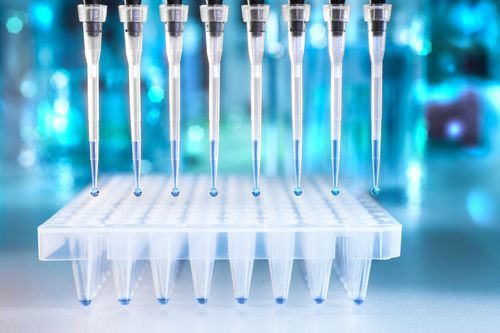RNA Genomic Sequencing Techniques Are Accurate, Despite Concerns

In cases where a doctor finds a rare form a cancer within a patient, he might recommend genome sequencing to accurately identify the underlying genetic causes, which can be told through reading their DNA. However, the patient questions whether the analysis will be accurate enough to save his life. According to a new study, he has nothing to worry about. Conducted by 150 researchers from across the world, the study found that there's great acuracy in RNA genomic sequencing.
The new study was published in Nature Biotechnology.
The genome is all the genetic material present in an organism, from their genes to their DNA. Genome sequencing is a chemical process that maps it all.
Why It's Useful
Diseases like cancer result from mutations in the inherent structure of the DNA. Understanding where and how these changes occur can scientists tailor specific treatments. This is where whole genome sequencing comes into play, because it shows exactly where roadblocks lie in a person’s DNA.
In 2003, scientists hailed the Human Genome Project, which mapped the entire sequence of human DNA, for its potential to revolutionize health care. Eleven years later, science has made great advances. While the project had taken years of painstaking work and billions of dollars, there are now labs that use new methods, which can sequence the genome for far cheaper, and at a faster rate. This has led experts to question the precision of genome analysis.
Testing For Accuracy
In order to determine the accuracy of these tests, the Mayo Clinic, the Beijing Genomic Institute, and Weill Cornell Medical School conducted what they called the Sequence Quality Control (SEQC) experiment, with the intent of defining both the scope and the sources of variation in RNA sequencing data. They did this by sequencing the same two RNA samples multiple times, which resulted in more than one billion nucleotides generated from each institution. The data was then analyzed by expert academics and statisticians under the direction of the Food and Drug Administration. During this time, the researchers also assessed technologies and biochemical methods used among 30 labs and hundreds of researchers to sequence RNA.
Not only did they find that these techniques were accurate, they also found that that RNA analyses were accurate, even when taken from severely degraded samples. The researchers called the findings promising. Dr. E. Aubrey Thompson, co-author of the study said in a press release that the findings should assure patients, clinicians, and the research community that the techniques are accurate.
"It was determined that there is very strong agreement between the sequence data generated by experienced sequencing laboratories," Thompson said. "The studies now establish the best practice for all laboratories to use, so that results are reliable and reproducible across laboratories."
Source- Thompson A, Su Z, Li S, et al. A comprehensive assessment of RNA-seq accuracy, reproducibility and information content by the Sequencing Quality Control Consortium. Nature Biotechnology. 2014.
Published by Medicaldaily.com



























